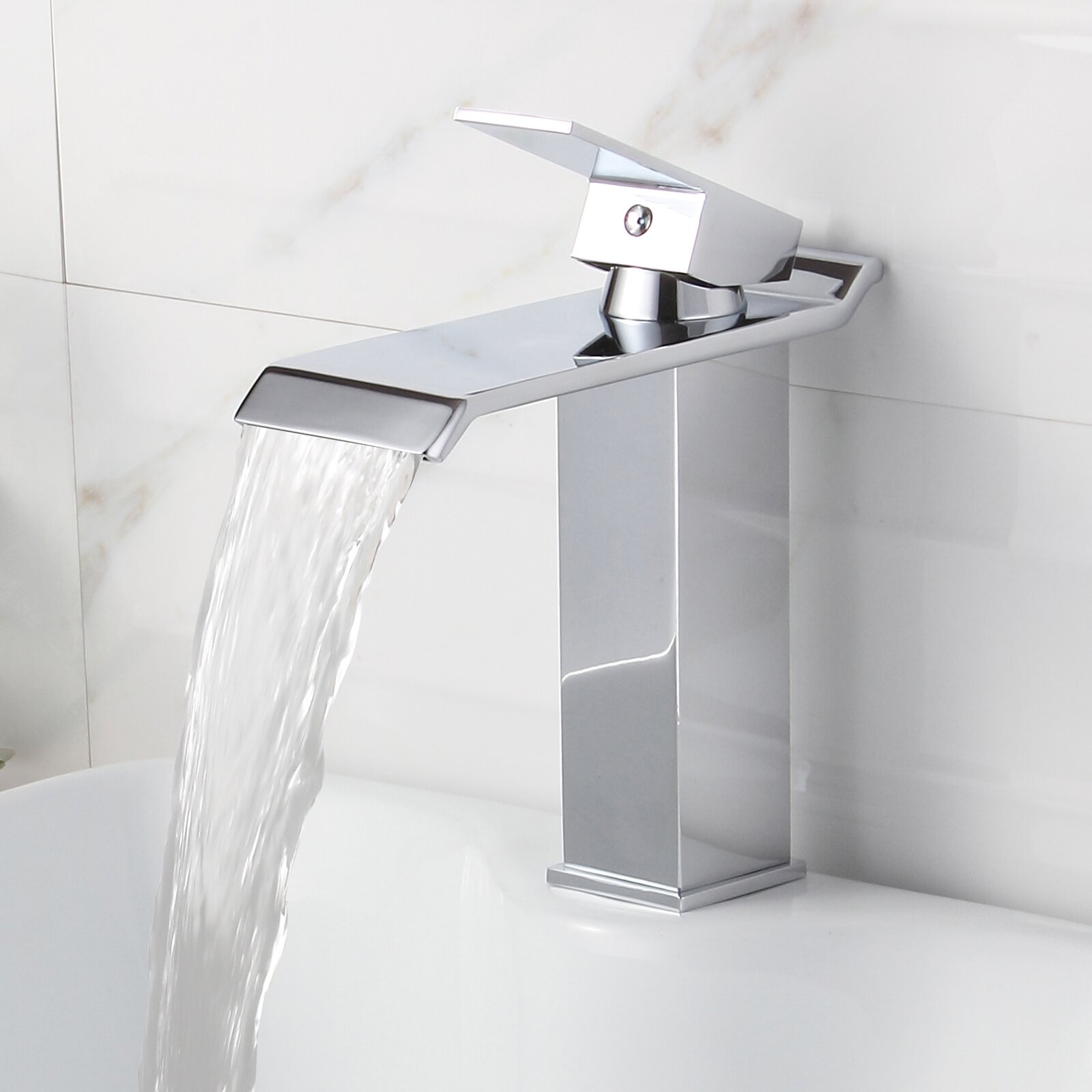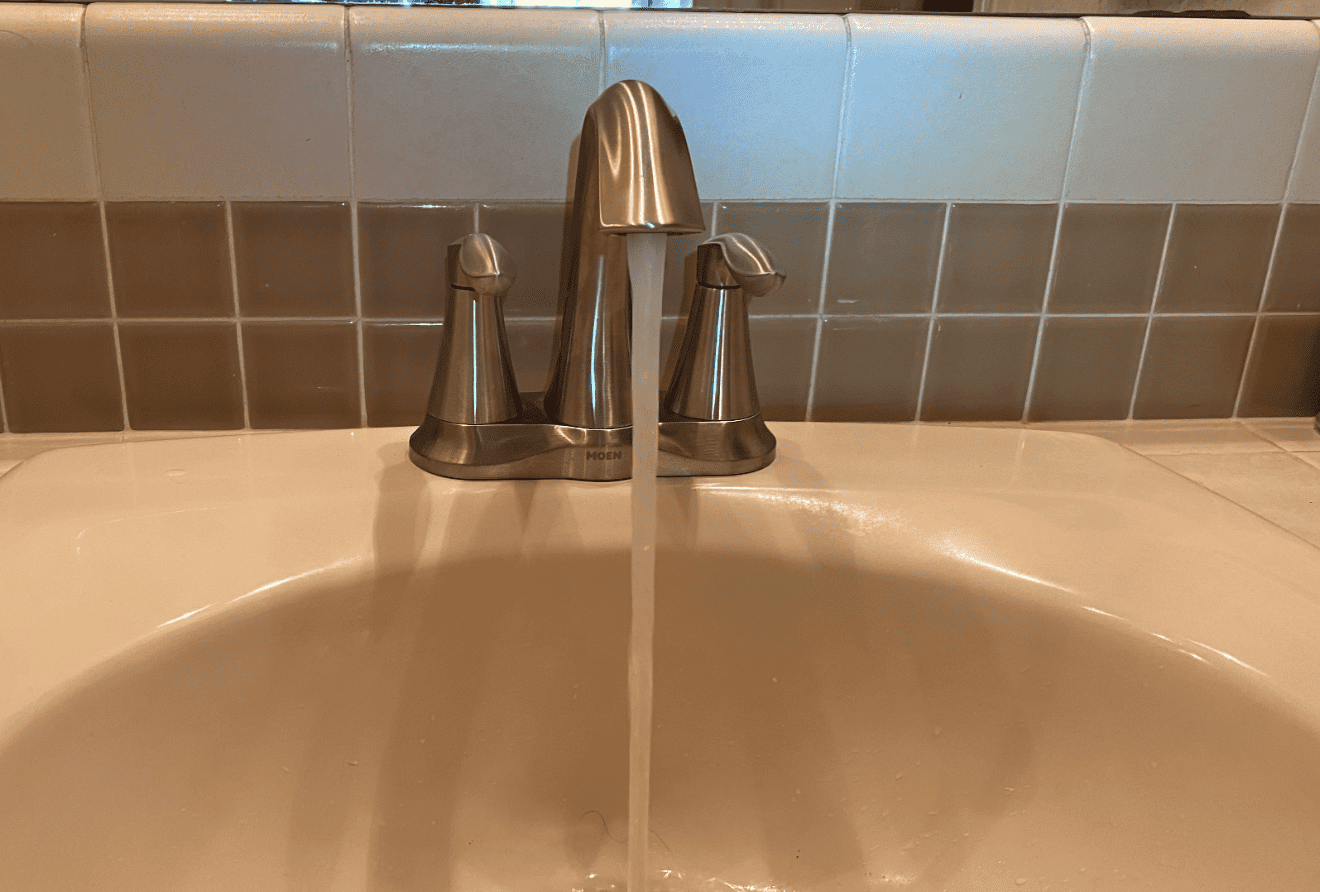Understanding Hard Water and Its Impact on Bathroom Faucets

Hard water is a common problem in many areas, and it can have a significant impact on bathroom faucets. Understanding the chemical composition of hard water and its effects on faucets can help you make informed decisions about maintenance and replacement.
The Chemical Composition of Hard Water
Hard water contains high concentrations of dissolved minerals, primarily calcium and magnesium. These minerals enter the water supply through natural sources like rocks and soil. In contrast, soft water has low mineral content.
The Effects of Hard Water on Bathroom Faucets
Hard water can cause several problems for bathroom faucets, including:
Mineral Buildup
Mineral buildup, also known as limescale, is a common problem with hard water. As water evaporates, the dissolved minerals in hard water crystallize and form a hard, white deposit on the faucet’s surface. This buildup can obstruct water flow, make it difficult to turn the faucet, and even damage the internal components.
Corrosion
Hard water can also contribute to corrosion, especially in faucets made of metal. The minerals in hard water can react with the metal, leading to rust and pitting. Corrosion can weaken the faucet and eventually lead to leaks.
Reduced Water Flow
Mineral buildup and corrosion can restrict water flow through the faucet. This can make it difficult to get a strong stream of water, and it can also lead to a decrease in water pressure.
Examples of Common Bathroom Faucet Problems Caused by Hard Water, Hard water resistant bathroom faucets
Hard water can cause a variety of problems for bathroom faucets. Here are some common examples:
- Dripping faucets: Mineral buildup can clog the faucet’s internal parts, causing it to drip.
- Slow water flow: Mineral buildup can restrict water flow, making it difficult to get a strong stream of water.
- Clogged aerator: The aerator, which mixes air with water to create a smooth flow, can become clogged with mineral buildup.
- Stuck handles: Mineral buildup can cause the faucet handle to become stuck or difficult to turn.
- Leaking valves: Mineral buildup can damage the faucet’s valves, causing them to leak.
Types of Hard Water Resistant Bathroom Faucets

Choosing the right bathroom faucet for your home is an important decision, especially if you have hard water. Hard water can cause mineral buildup that can damage your faucets, leading to leaks, reduced water pressure, and even premature failure. Luckily, there are several hard water resistant bathroom faucets available that are designed to withstand the challenges of hard water.
Types of Hard Water Resistant Bathroom Faucets
There are several types of hard water resistant bathroom faucets available, each with its own advantages and disadvantages. Here’s a breakdown of the most popular options:
- Stainless Steel Faucets: Stainless steel is a popular choice for bathroom faucets due to its durability and resistance to corrosion. Stainless steel faucets are also relatively easy to clean and maintain. However, they can be more expensive than other types of faucets.
- Ceramic Faucets: Ceramic faucets are known for their smooth surfaces that resist mineral buildup. They are also typically more affordable than stainless steel faucets. However, ceramic faucets can be more prone to scratches and may not be as durable as stainless steel faucets.
- Brass Faucets: Brass faucets are another popular choice for bathroom fixtures. They are known for their durability and resistance to corrosion. Brass faucets can also be polished to a high shine, giving them a luxurious look. However, brass faucets can be more expensive than other types of faucets.
Comparison of Hard Water Resistant Bathroom Faucets
Here is a table comparing the features and characteristics of various hard water resistant bathroom faucets:
| Type | Material | Finish | Price Range | Advantages | Disadvantages |
|---|---|---|---|---|---|
| Stainless Steel | Stainless Steel | Brushed Nickel, Polished Chrome, Matte Black | $100 – $500+ | Durable, corrosion-resistant, easy to clean | Can be expensive |
| Ceramic | Ceramic | White, Ivory, Black | $50 – $200 | Smooth surface resists mineral buildup, affordable | Prone to scratches, may not be as durable as stainless steel |
| Brass | Brass | Polished Brass, Brushed Nickel, Oil Rubbed Bronze | $150 – $600+ | Durable, corrosion-resistant, luxurious look | Can be expensive |
Maintenance and Care for Hard Water Resistant Bathroom Faucets

Even the most robust hard water resistant bathroom faucets require proper maintenance to ensure their longevity and optimal performance. Regular cleaning and care can help prevent mineral buildup, corrosion, and other issues that can compromise their functionality and aesthetics.
Cleaning and Maintenance Procedures
Different types of hard water resistant bathroom faucets require specific cleaning and maintenance procedures.
- Chrome faucets: Chrome faucets are relatively easy to clean. Use a soft cloth and a mild soap solution to wipe down the surface. Avoid abrasive cleaners, as they can scratch the chrome finish. For stubborn stains, you can use a vinegar solution.
- Brushed nickel faucets: Brushed nickel faucets are more susceptible to scratches than chrome faucets. Use a soft cloth and a mild soap solution to clean the surface. Avoid abrasive cleaners, as they can damage the finish.
- Stainless steel faucets: Stainless steel faucets are generally resistant to corrosion and scratches. However, they can still develop mineral buildup over time. Use a soft cloth and a mild soap solution to clean the surface. You can also use a stainless steel cleaner for more stubborn stains.
- Oil-rubbed bronze faucets: Oil-rubbed bronze faucets have a unique finish that can be susceptible to scratches and discoloration. Use a soft cloth and a mild soap solution to clean the surface. Avoid abrasive cleaners, as they can damage the finish. You can also use a specialized oil-rubbed bronze cleaner to restore the finish.
Preventing Mineral Buildup and Corrosion
Mineral buildup and corrosion can significantly affect the performance and lifespan of hard water resistant bathroom faucets.
- Regular cleaning: Regular cleaning can help prevent mineral buildup and corrosion. Wipe down the faucet after each use with a soft cloth and a mild soap solution.
- Descaling: For more stubborn mineral buildup, you can use a descaling solution. Vinegar is a natural descaler that can effectively remove mineral deposits. Soak a cloth in vinegar and wrap it around the affected area. Let it sit for a few hours, then scrub the area with a soft brush.
- Avoid abrasive cleaners: Abrasive cleaners can scratch the surface of the faucet and make it more susceptible to corrosion.
Using Water Softeners or Filters
Using a water softener or filter can significantly reduce the amount of hard water minerals in your home’s water supply, protecting your bathroom faucets from mineral buildup and corrosion.
- Water softeners: Water softeners remove calcium and magnesium ions from the water, making it softer. This can significantly reduce the amount of mineral buildup on your bathroom faucets.
- Water filters: Water filters can remove various impurities from the water, including sediment, chlorine, and hard water minerals.
Hard water resistant bathroom faucets are a must-have for anyone living in an area with high mineral content in their water. These faucets are designed to withstand the corrosive effects of hard water, ensuring a longer lifespan and preventing unsightly mineral buildup.
If you’re looking for a reliable and durable faucet, moen bathroom faucet reviews can be a great resource for finding the perfect option. Moen is known for its high-quality faucets, many of which are specifically designed to resist the damaging effects of hard water, so you can rest assured that your investment will last for years to come.
Hard water can wreak havoc on bathroom fixtures, leaving behind unsightly mineral deposits and shortening their lifespan. For those battling the relentless assault of calcium and magnesium, finding faucets that can withstand the onslaught is paramount. American Standard brass bathroom faucets , known for their durability and innovative designs, offer a compelling solution, featuring finishes and components designed to resist the corrosive effects of hard water, ensuring a long-lasting and beautiful bathroom oasis.